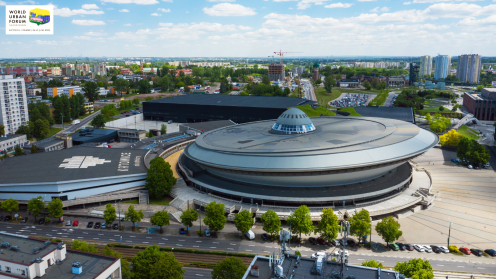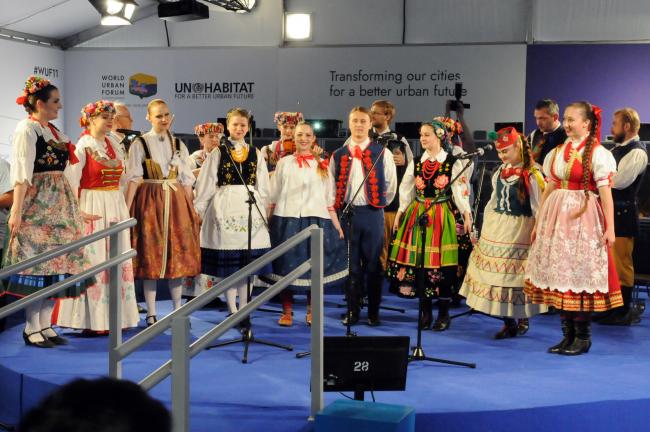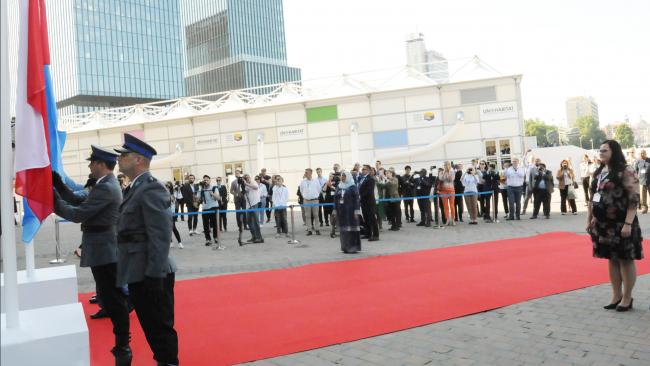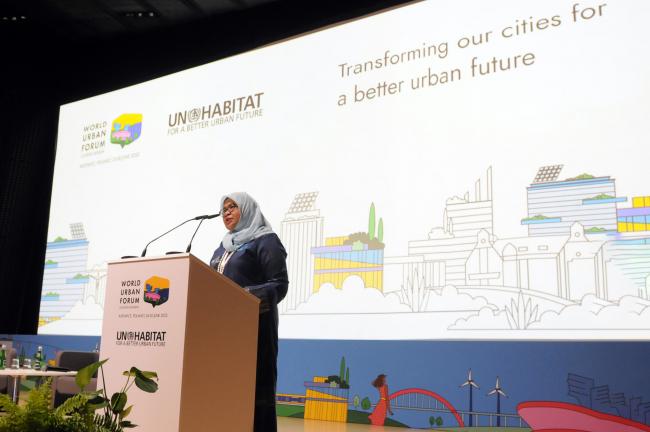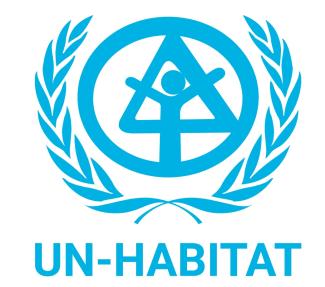The eleventh World Urban Forum (WUF11) began with a flag raising ceremony. This was followed by the Joint Opening of the Assemblies of major stakeholder groups that are traditionally held before the official Opening Ceremony on the following day. Maimunah Mohd Sharif, Executive Director, UN-Habitat, welcomed participants to the first WUF in Central and Eastern Europe, and listed five priorities: partnerships to review New Urban Agenda (NUA) implementation; quick impact projects to develop monitoring mechanisms; approaches for promoting human rights and equity; policies to monitor global commitments; and sustainable urban and land-use planning. Małgorzata Jarosińska-Jedynak, Ministry of Development Funds and Regional Policy of Poland, emphasized the importance of city-dweller participation to make good cities for all.
Want to dive deeper on today's talks? Read the Earth Negotiations Bulletin daily report.
Throughout the assemblies, speakers stressed the challenges that the COVID-19 pandemic, inflation, climate change, and conflict impose on cities, while lauding their swift response and generosity in providing a safe haven for Ukrainian refugees. Many also called for better representation of local and regional governments in national and international decision making to prevent future crises that primarily affect cities. The need to provide services emerged as a key issue in several assemblies as, in the absence of public services, women bear the brunt of providing care at the cost of income or education, which pushes them further behind.
Emphasizing action over theory, the Grassroots Assembly underscored their role as agents of change. Through breakout sessions, the Assembly identified key action points, including: equitable partnerships, with resources allocated to communities; inclusion of women in implementing the Sustainable Development Goals (SDGs); evidence-based advocacy drawing on local knowledge and data; and building back through formalized partnerships with clear responsibilities and monitoring.
Participants of the Children and Youth Assembly reflected on how to further youth leadership in sustainable urbanization at a time of multiple economic, political, security, and health crises. They also heard demands by young advocates themselves, who called for greater and better inclusion in decision-making spaces.
Participants of the Women’s Assembly noted that the four crises of COVID-19 pandemic, conflict in Ukraine, global inflation, and climate change continue to expose fragilities in our societal makeup, with women bearing the largest burden. Because of this, it has become more urgent than ever to ensure women are relieved of their unpaid caregiving roles and are centered as decision makers in the recovery and planning processes for a brighter collective future.
The Business Assembly convened business leaders and government officials to identify opportunities for partnership in the wake of emerging climate, geopolitical, and global health issues facing cities. The need for innovation, data, and strong frameworks was a persistent theme in discussions about how to foster a collaborative environment for cross-sectoral efforts.
During the World Assembly of Local and Regional Governments, mayors, international organizations, and networks shared innovations and policy directions on implementing the SDGs and the NUA in the context of current global crises, with many calling to strengthen the voice of local and regional governments in national and international decision making, insisting that those who bear the consequences must have a place at the decision-making table.
All ENB photos are free to use with attribution. For photos from WUF11, please use: Photo by IISD/ENB | Diego Noguera.
To receive free coverage of global environmental events delivered to your inbox, subscribe to the ENB Update newsletter.
